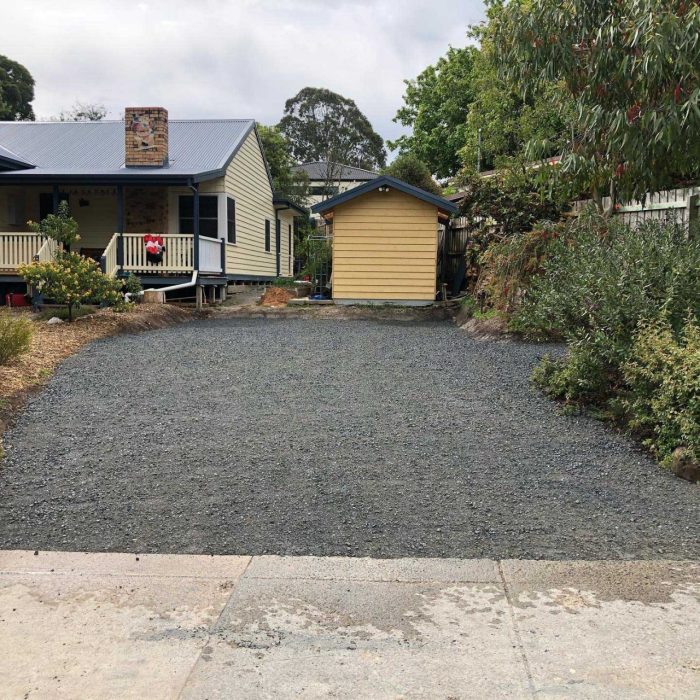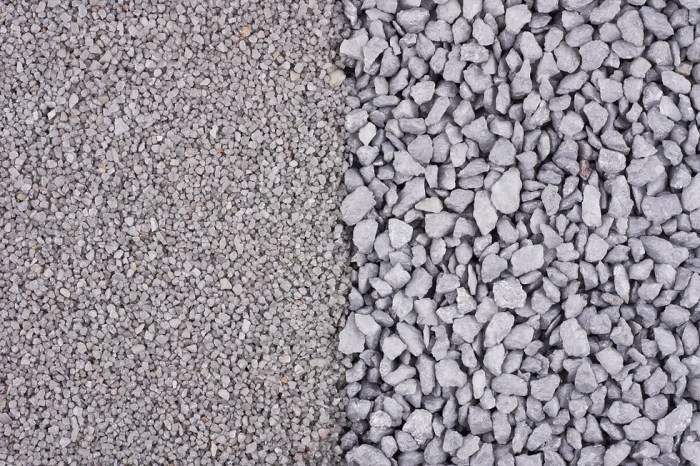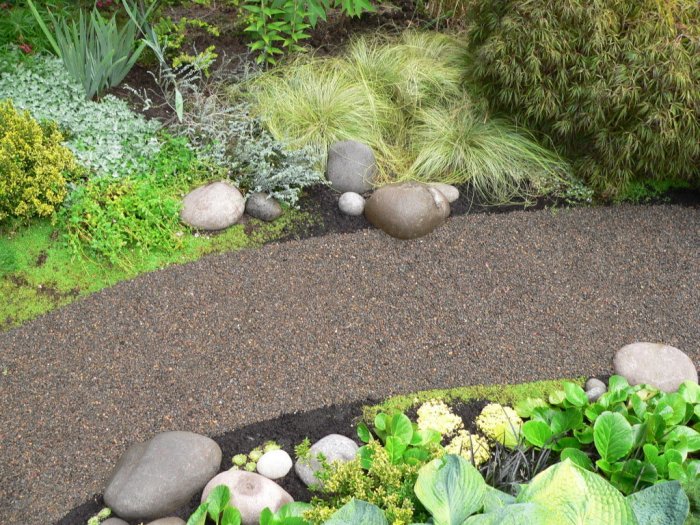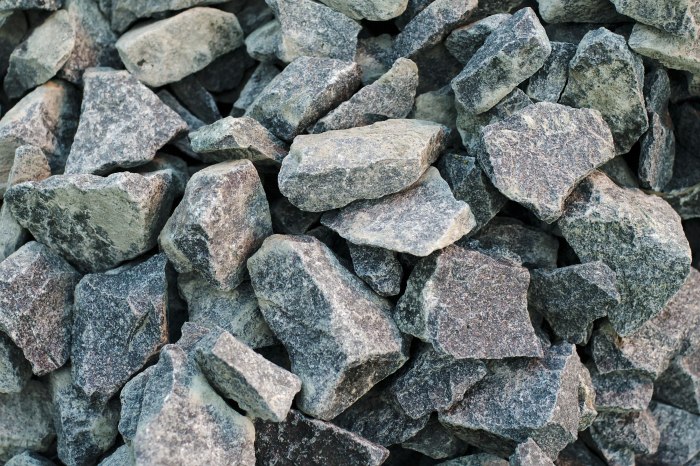Gravel crushed rock cinder these are used as – Gravel, crushed rock, and cinder are versatile materials commonly used in construction, landscaping, and road building. These materials offer unique properties that make them suitable for a wide range of applications, from driveways and patios to highways and building foundations.
This article explores the different types, uses, and advantages of gravel, crushed rock, and cinder, providing a comprehensive guide to their applications in various construction projects.
Gravel, Crushed Rock, and Cinder: Gravel Crushed Rock Cinder These Are Used As

Gravel, crushed rock, and cinder are all common materials used in construction and landscaping. They are all composed of small pieces of rock, but they have different properties and uses.
Gravel
Gravel is a loose aggregate of small rocks that are typically less than 2 inches in diameter. It is formed when larger rocks are broken down by weathering or erosion. Gravel is a versatile material that can be used for a variety of purposes, including:
- Road construction
- Driveways and parking lots
- Walkways and patios
- Drainage systems
- Landscaping
Crushed Rock
Crushed rock is a type of gravel that has been processed to create a more uniform size and shape. It is typically made from larger rocks that are crushed into smaller pieces. Crushed rock is a stronger and more durable material than gravel, and it is often used in applications where strength and durability are important, such as:
- Road construction
- Bridges
- Buildings
- Railroad ballast
Cinder
Cinder is a type of volcanic rock that is formed when lava cools and solidifies. It is a lightweight and porous material that is often used as a soil amendment or in landscaping. Cinder can also be used as a lightweight aggregate in construction.
- Soil amendment
- Landscaping
- Lightweight aggregate
Comparison of Gravel, Crushed Rock, and Cinder, Gravel crushed rock cinder these are used as
The following table compares the key characteristics of gravel, crushed rock, and cinder:
| Characteristic | Gravel | Crushed Rock | Cinder |
|---|---|---|---|
| Size | Less than 2 inches in diameter | Typically less than 2 inches in diameter | Varies, but typically less than 1 inch in diameter |
| Shape | Irregular | Uniform | Irregular |
| Strength | Weak | Strong | Weak |
| Durability | Poor | Good | Poor |
| Weight | Heavy | Heavy | Lightweight |
| Porosity | Low | Low | High |
| Uses | Road construction, driveways, walkways, drainage systems, landscaping | Road construction, bridges, buildings, railroad ballast | Soil amendment, landscaping, lightweight aggregate |
FAQ Overview
What are the key differences between gravel, crushed rock, and cinder?
Gravel is naturally occurring, rounded stones, while crushed rock is produced by breaking larger rocks into smaller pieces. Cinder is a lightweight, porous material formed from volcanic eruptions.
Which material is best suited for driveways?
Crushed rock is typically used for driveways due to its durability and resistance to compaction.
Can gravel be used for landscaping?
Yes, gravel is commonly used in landscaping for decorative purposes, such as in pathways and flower beds.


